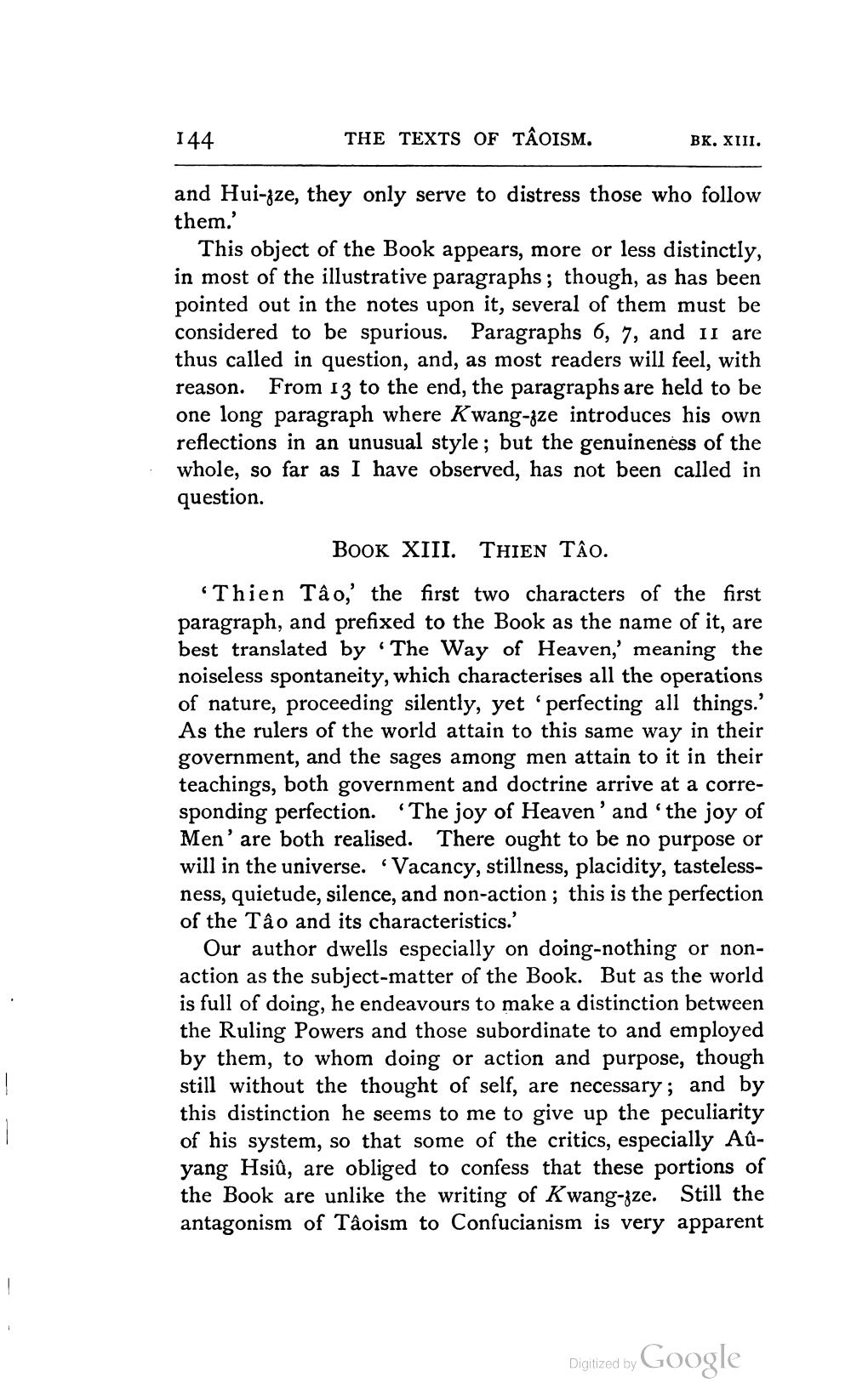________________
144
THE TEXTS OF TÂOISM.
BK. XIII.
and Hui-zze, they only serve to distress those who follow them.'
This object of the Book appears, more or less distinctly, in most of the illustrative paragraphs; though, as has been pointed out in the notes upon it, several of them must be considered to be spurious. Paragraphs 6, 7, and il are thus called in question, and, as most readers will feel, with reason. From 13 to the end, the paragraphs are held to be one long paragraph where Kwang-zze introduces his own reflections in an unusual style; but the genuineness of the whole, so far as I have observed, has not been called in question.
BOOK XIII. THIEN TAO. Thien Tâo,' the first two characters of the first paragraph, and prefixed to the Book as the name of it, are best translated by “The Way of Heaven,' meaning the noiseless spontaneity, which characterises all the operations of nature, proceeding silently, yet 'perfecting all things.' As the rulers of the world attain to this same way in their government, and the sages among men attain to it in their teachings, both government and doctrine arrive at a corresponding perfection. The joy of Heaven' and 'the joy of Men' are both realised. There ought to be no purpose or will in the universe. Vacancy, stillness, placidity, tastelessness, quietude, silence, and non-action ; this is the perfection of the Tâo and its characteristics.'
Our author dwells especially on doing-nothing or nonaction as the subject-matter of the Book. But as the world is full of doing, he endeavours to make a distinction between the Ruling Powers and those subordinate to and employed by them, to whom doing or action and purpose, though still without the thought of self, are necessary; and by this distinction he seems to me to give up the peculiarity of his system, so that some of the critics, especially Allyang Hsiû, are obliged to confess that these portions of the Book are unlike the writing of Kwang-zze. Still the antagonism of Taoism to Confucianism is very apparent
Digitized by Google




